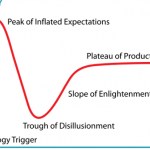finance
Science had a very interesting special section this spring: The Science of Inequality - basically doing a summary and review of issues related to the stuff in Piketty's book Capital in the Twenty-First Century
The section has a series of very interesting articles on a range of related topics:
"Inequality in the Long Run" by Piketty and Saez
"The ancient roots of the 1%" by Pringle
"Our Egalitarian Eden" by Pennisi
"Physicists say it's simple" by Cho
"Tax man's gloomy message: the rich will get richer" by Marshall
"A World of Difference" by Underwood
"Can Disparities by Deadly?" by…
"...To see oursels as ithers see us!
It wad frae monie a blunder free us
An foolish notion:"
Yes, everyone has linked the latest, greatest XKCD:
So painful, so true.
Fortunately the other thing about physicists, is that we have a great sense of humour.
And we need it.
Steve Hsu has been doing some provocative ruminating along these lines.
This of course leads to classification of physicists, there being two types:
Type I is smart.
Type II is hard working.
Type Ib/c is smart and hard working, and therefore really sub-category of Type II
while Type Ia is smart but lazy.
Type IIn is hard…
Icelanders reject deal to repay British and Dutch:
The outcome of the referendum had not been in doubt since Iceland had recently been offered better repayment terms than those contained in the deal on which residents were voting.
Partial referendum results from around a third of the cast votes showed 93 percent opposed the deal and less than 2 percent supported it. The rest cast invalid votes.
But the rejection will still have major repercussions, keeping financial aid on hold and threatening to undermine the center-left government of Prime Minister Johanna Sigurdardottir.
"This has no…
Iceland Voters Set to Reject Debt Deal:
After the dust began to settle last year -- after the banks failed, the currency collapsed, the stock market crashed and the government fell -- the dazed inhabitants of Iceland woke up to another unpleasant problem: They owed, it seemed, some $5.3 billion to more than 300,000 angry people in the Netherlands and Britain.
These were the customers of Icesave, a now notorious online retail branch of the Icelandic bank Landsbanki, which went bankrupt in October 2008 along with 85 percent of Iceland's banking system. The British and Dutch governments…
Over at Gene Expression, Razib suggests that trouble lies ahead for personal genomics company 23andMe. Although I'm generally a bit of a cheerleader for the Mountain View-based startup, I must admit the signs over the past year or so haven't been good: two rounds of lay-offs, the departure of co-founder Linda Avey, and the apparent deployment of $4M from a recent funding round to pay back a loan from fellow co-founder Anne Wojcicki.
Razib also notes some anonymous employee reviews of the company on GlassDoor suggesting poor morale among 23andMe workers; it's hard to make too…
This piece in Newsweek is a neat summary of the rise and fall of Icelandic genomics giant deCODE Genetics. Regular readers of Genetic Future will be aware that the company has been steadily bleeding capital ever since its launch over a decade ago, and recently declared formal bankruptcy. Since then the company has been bought up by US-based company Saga Investments. (For an excellent analysis of the implications of this sale, see Dan Vorhaus' post on Genomics Law Report.)
A reader emailed me to point out that buried towards the end of the Newsweek article is an ominous paragraph for…
By now, you probably know that there is a specter haunting Europe, and that specter is Argentina. Greece's debt crisis is putting the spotlight on the PIIGS nations of the Eurozone, Portugal, Ireland, Italy, Greece and Spain.
One thing to note is that besides mismanaging their fiscal situation, 4 of he 5 PIIGS are more ethical than the Swedes. Sweden's total fertility rate per woman is ~1.67.
Ireland = 1.85
Greece = 1.51
Spain = 1.39
Italy = 1.41
Portugal = 1.49
Ireland is the bad seed here, being profligate and unethical. The downside to being ethical is that it makes the welfare state…
Jobless Turn to Family for Help, Often With Complications:
More than half of the respondents to a recent New York Times/CBS News poll of 708 unemployed adults nationwide said they had borrowed money from friends or relatives. In most cases, their financial pictures were bleak. Nearly 80 percent of those who reported borrowing money said their family's financial situation was "fairly bad" or "very bad," a significantly greater proportion than among those who had not had to borrow.
The numbers here might exaggerate the effect some, as an individual who is going through financial turmoil may…
Keith Robison has a perceptive piece riffing off the recent Illumina instrument launch, and ponders whether 2010 will be the year that array-based genomic technologies finally start to die off with the rise of sequencing.
The market certainly seems to think so. Check out the immediate effect on stock prices for Illumina (ILMN) and array manufacturer Affymetrix (AFFX) following the Illumina announcement (both normalised to 0 at the start of the graph):
This comes in the context of long-term stagnation of AFFX stock, while Illumina has exploded over the last five years. Illumina made plenty…
There has been more blogospheric discussion on the topic of my post Doing the right thing, doing the legal thing. Megan McArdle, who started the discussion, has a long post elaborating on her objections to strategic defaults. Steve Waldman has two good posts up. Finally, at The Big Money Daniel Gross concludes:
Of course, corporate managers and financiers don't suffer from these neuroses. Do you think billionaire investor Sam Zell feels any guilt or shame because his buyout of the Tribune Co., which had $12.9 billion in debt, ended in a Chapter 11 filing last December? Rather than worry about…
Megan McArdle has a post up where she follows up on her disgust with home owners who "walk away" from their mortgage obligations when they can continue to pay them. In California, and many other states, the bank can't come after you if you walk away, so if your home is "underwater" then it is often a "rational" decision.
Megan makes the point that our economic and social system does not rely purely on rational self-interest, but also on an accumulated capital of norms which lead to virtuous cycles. My family is from Bangladesh, and I have seen this first hand. Corruption & nepotism in…
I was just sent this email by a deCODEme customer:
As a valued subscriber to deCODEme, we wanted to write to you directly to
let you know about some important developments in the company and how we
believe these will underpin our ability to continue to keep you in the
forefront of understanding what the latest advances in genetics mean to you.
For the past several months, deCODE has been working on restructuring its
operations. One of the principal goals of this effort has been to enable us to
find new investment that will continue our work in human genetics and to offer
to our customers…
Struggling Icelandic biotech deCODE Genetics has finally reached the point of formal insolvency. A press release today announces that the company has filed for chapter 11 bankruptcy in a US court:
In a filing with the U.S. Bankruptcy Court for the District of Delaware late on Monday, deCODE listed total assets of $69.9 million and total debt of $313.9 million, as of June 30.
deCODE launched in 1996, basing its business plan on its unique access to biological samples and genealogical and medical records from the small, homogeneous Icelandic population. Since its launch it has proved…
Blackjack, or 21, is a game that many enjoy wasting their money playing at casinos. For those who don't like to waste their money, or at least want to waste it more slowly than others, card counting is a time honored tradition for moving the odds away from the casino and in the players direction (blessed be Ed Thorp.) In other words it makes the game at least slightly enjoyable for those who like to win. But now a graduate of the University of Dundee, Kris Zutis, is going to ruin this small smidgen of fun:
A University of Dundee graduate has created a computer system with the potential to…
James Simons, he of the Chern-Simons form, and also, of late, from the hedge fund Renaissance Technologies Corporation, is retiring. The infamous Medallion fund was up last year, apparently, only a mere 80 percent.
Quite a feat, turning
into
Lewis Is Said to Be Leaving Bank of America. Years ago I'd read that there was some social science which suggested that M&As were encouraged by the incentive structure of CEO careers; that is, the upside for a CEO in relation to a successful M&A are higher than for their firm. As for the downsides, the effect sizes are probably inverted. Steve Case & Gerald Levin might have their reputations in tatters, but they remain wealthy men. As for Time Warner....
The Nightmare Of Regulatory Reform:
...the SEC and the CFTC, two agencies that have fought hard to stay apart while the products they regulate grow more and more intertwined. Both Republicans and Democrats agree the two should become one, but former House Financial Services Committee chairman Mike Oxley says the chances of that happening are about as good as him beating Tiger Woods.
This is obviously public choice theory at work. But more generally an inspection of history shows that institutions tend to go through phases, as if they have a life history like organisms. The Chinese dynastic…
Those of you interested in the recent debate over math, beauty, economics, and Paul Krugman, and who are in New York on Oct 5 might be interested in a talk by Eric Weinstein at Columbia:
We will be taking a position opposite to the Claim of Nobel Laureate Paul Krugman:
"As I see it, the economics profession went astray because economists, as a group, mistook beauty, clad in impressive-looking mathematics, for truth."
It is our claim that in Economics as well as Physics, Mathematics and Biology, Elegance has been an essential guide to understanding how to properly construct the foundations of…
In the second of three guest posts, lawyers Daniel Vorhaus and Lawrence Moore of the superb blog Genomics Law Report discuss the implications for personal genomics customers if their provider goes bankrupt. In part one of the series (posted yesterday), Vorhaus and Moore dissected the implications of the privacy policies of two personal genomics companies, TruGenetics and 23andMe.
Today's post is an in-depth analysis of the complex legal issues surrounding the treatment of genetic information gathered by a now-bankrupt personal genomics company. For those who get a little lost in…
In this series of three guest posts, lawyers Daniel Vorhaus and Lawrence Moore of the excellent Genomics Law Report provide insight into the intriguing question of what happens to customers' genetic data in the event that a personal genomics company goes out of business. Part II and III of this series will be posted over the next two days.
What Happens if
a DTC Genomics Company Goes Belly Up?
Direct-to-consumer (DTC) genomics
companies are not immune to the current recession. When TruGenetics,
a new player in the DTC genomics space, announced in June that it would
be handing out 10,000…


